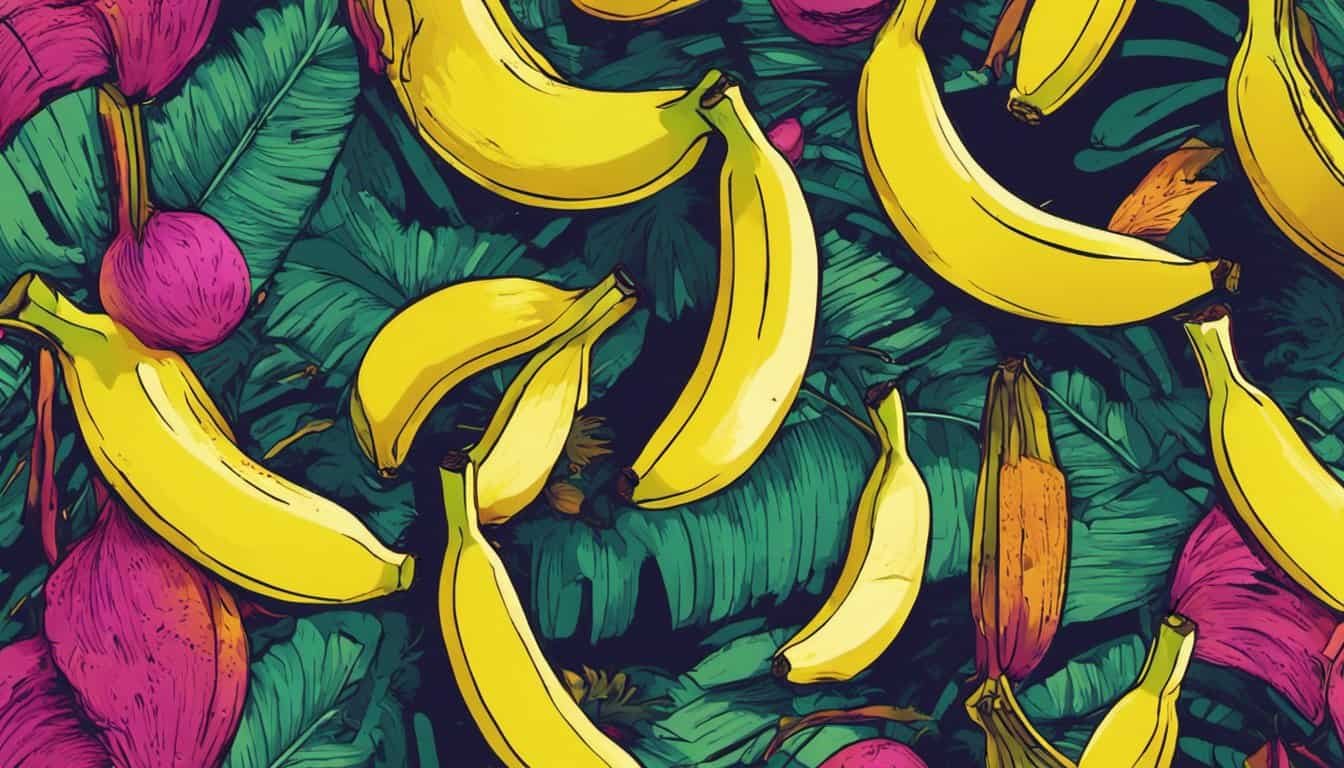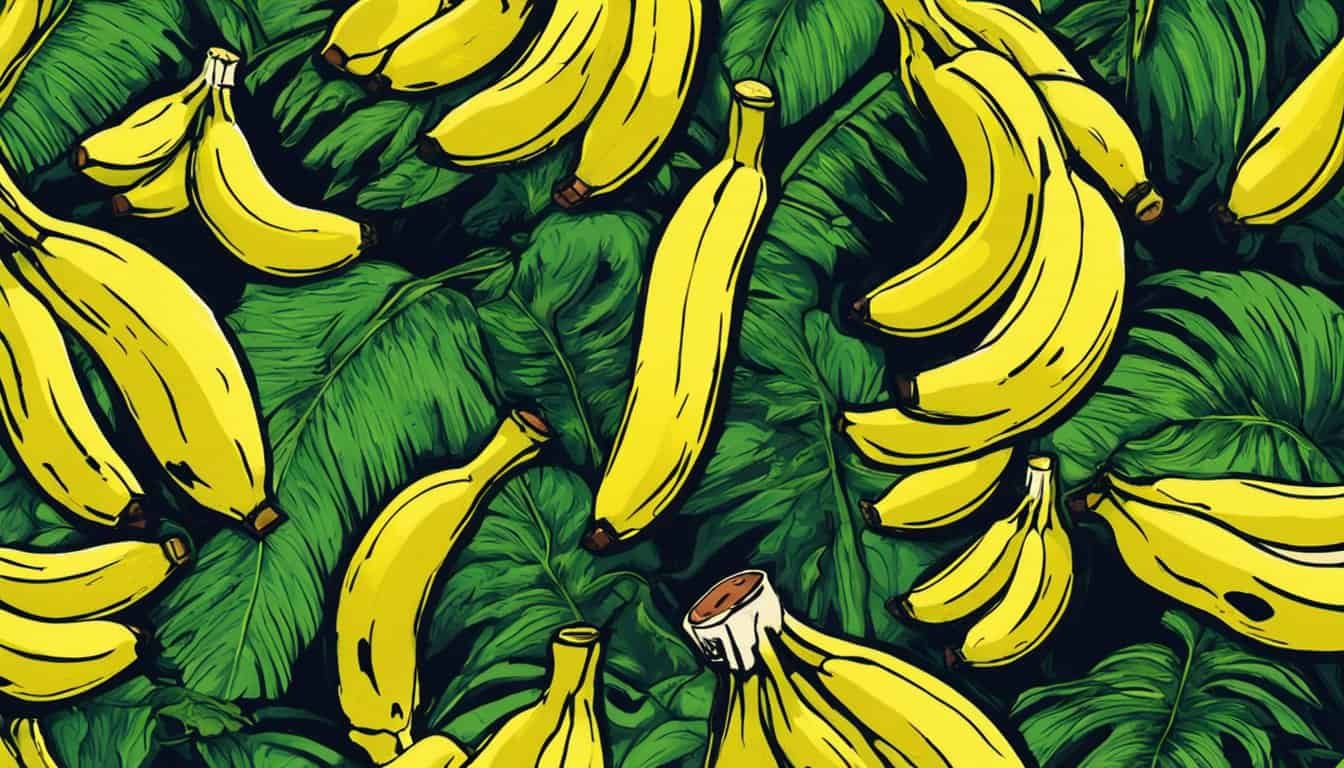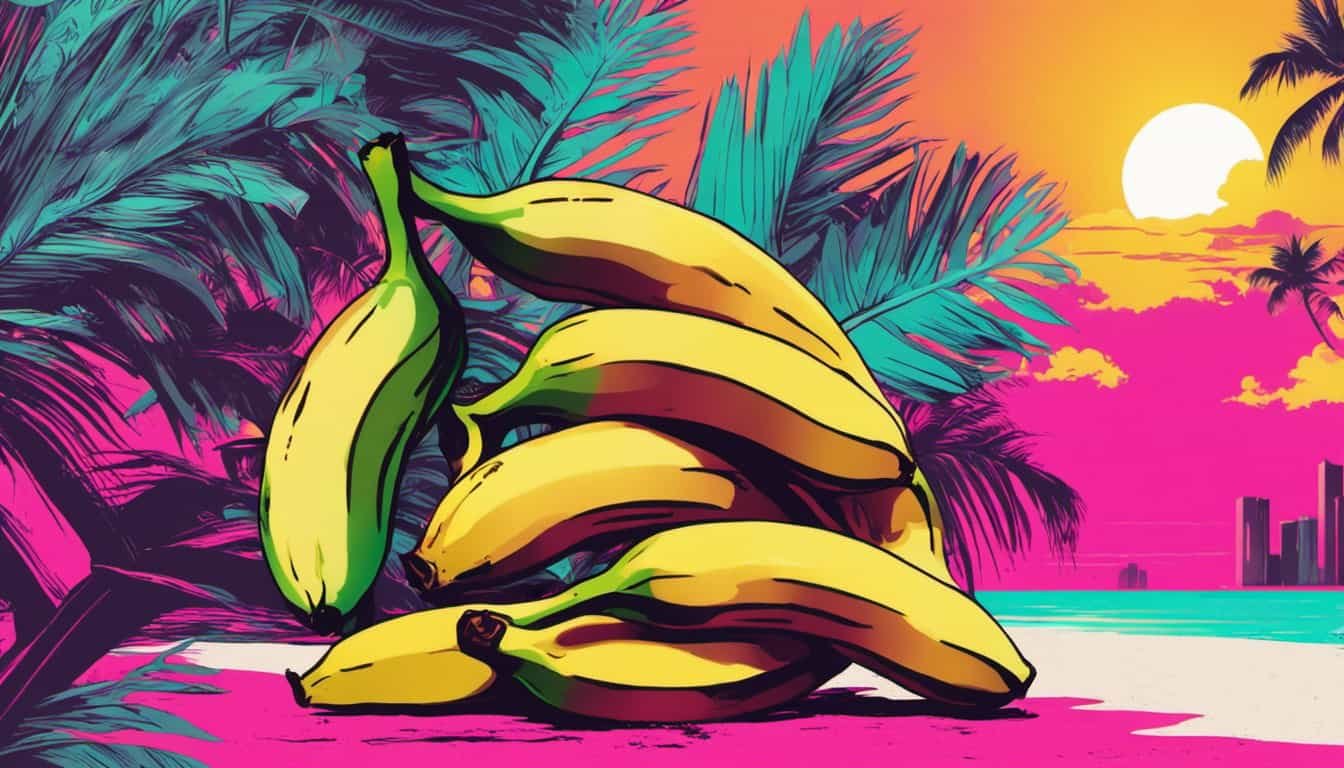It’s difficult to say exactly how many bananas is too many as this can vary depending on a person’s age, sex, weight, and activity level. However, as a general rule of thumb, it’s probably safe to say that eating more than six bananas in a day may be considered excessive.

It’s important to remember that everyone is different and that it’s always a good idea to talk to your doctor if you have any concerns about your diet. Let’s look a little deeper into how many bananas is too many to eat in a single day.
How Many Bananas Can I Eat a Day?
Eating bananas is an important part of any healthy diet. While there’s no exact answer to “how many bananas can I eat a day,” it’s generally recommended that adults aim for two to three servings per day. Eating more than this amount could lead to unnecessary weight gain or other potential health risks.

At the same time, everyone has different dietary and nutritional needs. Speak with your doctor or nutritionist if you have questions about how specific foods and portions fit into your unique lifestyle habits and body type.
Additionally, be sure to consider the overall quality of the food in addition to quantity when deciding what types of fruits are best for you on a daily basis – whole foods like natural fruits will always provide more nutrients than processed snacks with added sugars or preservatives!
What Will Happen If You Eat 3 Bananas a Day?
Eating three bananas a day can be beneficial for your health in many ways. Bananas are high in nutrients such as potassium, vitamin C, and dietary fiber, all of which play an important role in maintaining overall health.
Additionally, the natural sugars found within bananas provide you with quick energy that helps fuel long days.
Eating too many bananas may cause side effects such as digestive discomfort due to their high fructose content or an increase in body weight due to the calories contained within them.
If consumed along with other sources of carbohydrates throughout the day it is unlikely that eating three bananas per day will have any negative impacts on one’s health; however those who are trying to lose weight should still practice moderation when consuming this fruit.
Is 4 Bananas a Day Too Much?
How much is too much when it comes to eating bananas? It’s a common question, and the answer really depends on your overall diet. For most people, four bananas per day shouldn’t pose any health risks. However, this amount of fruit can be difficult for some to digest due to its high fiber content.
Bananas are incredibly nutritious with vitamins A, B6 and C as well as minerals like magnesium and potassium that are essential for good health. They also contain dietary fiber which helps keep you feeling fuller longer while providing important digestive benefits like improved regularity of bowel movements.
However, consuming more than four bananas a day can lead to an increase in calories without providing other beneficial nutrients such as protein or healthy fats found in other foods sources like nuts or dairy products.
Eating too many may also lead to flatulence from excessive gas build-up due to the pectin contained within each banana’s skin causing it not be fully digested by your body – leading potentially dire consequences!

You should always speak with your doctor before making any significant changes in how often you eat them so they can provide tailored advice based on individual needs and lifestyle factors
Is 5 Bananas a Day Too Much?
Eating five bananas a day is generally too much for most people, due to the high sugar content. While there are some potential health benefits from eating this amount of fruit, it can also lead to weight gain and an unhealthy spike in blood sugar levels.
The recommended daily intake of potassium (which is found in bananas) should not exceed 4,700mg a day. Eating five bananas contains 2,400 mg of potassium so consuming this amount per day will put someone over their recommended limit if they do not take any other sources into account when creating their diet plan.
Additionally, even though food cooked with banana as an ingredient may taste great and be healthy on its own right. Adding too many ingredients that contain natural sugars can have negative effects on overall health overtime. Especially when combined with excessive daily consumption or no physical exercise or activity whatsoever to help burn off the calories taken during meals by digesting such foods containing these types of sugars.
As always it’s advisable to find balance between all kinds of things you eat every day and follow your doctor’s advice for personal nutrition plans according to your individual needs.
This includes how many servings one can safely consume from each food group without increasing risks for developing chronic diseases like diabetes later down the road.

Is 6 Bananas a Day Too Much?
« The Best Easy Banana Bread Recipe for Beginner Bakers
Where Do Bananas Grow? Unpeeling the Mystery »
Eating six bananas a day may seem like an excessive amount of fruit, but it’s not necessarily unhealthy. Bananas are packed with nutrients and offer many health benefits. However, eating more than six bananas in one sitting could cause digestive issues due to their high fiber content.
When consumed in moderation, the average-sized banana contains just over 100 calories and offers 3 grams of dietary fiber as well as important vitamins and minerals such as potassium, magnesium, vitamin B6 and manganese.
In general, most experts recommend that adults consume 2-3 servings of fruit per day for optimal health benefits; thus 6 bananas would be too much if all your daily nutritional needs were met by them alone.
Eating 6 or more ripe bananas on top of other nutrient-rich foods can provide additional energy throughout the day while also promoting overall good health through the anti-inflammatory properties found within their essential vitamins and minerals.
This makes them a great snack choice for those who want to increase their intake without having to worry about consuming too much sugar from processed snacks or drinks! Just remember: everything should be enjoyed in moderation!
What Happens When You Eat Too Many Bananas?
Eating too many bananas can have both positive and negative effects on your health. On the plus side, they are a good source of vitamins and minerals such as magnesium, potassium, vitamin C, dietary fiber, and more.
Eating several bananas in one sitting may also provide you with an energy boost due to their natural sugar content.
However, consuming excessive amounts of this fruit can result in negative consequences for your overall health.
Bananas contain high levels of fructose—a type of sugar that is associated with weight gain when consumed in excess—which could lead to unwanted fat accumulation around the stomach area if eaten frequently or excessively over time.

Moreover, because they are rich in carbohydrates it’s best not to eat them late at night before bedtime; otherwise, you risk having trouble sleeping due to the spike in blood glucose levels that occurs after eating too much carbohydrate-rich food like bananas close to bedtime
Is Eating 30 Bananas a Day Healthy?
Eating 30 bananas a day is not considered healthy. Eating too many bananas can lead to an unhealthy imbalance of nutrients in the body, as well as serious medical conditions such as hyperkalemia (elevated potassium levels) and hypoglycemia (low blood sugar). Additionally, eating large amounts of any single food may cause digestive issues.
It’s best to have a balanced diet that includes a variety of fruits and vegetables so your body receives all the essential vitamins and minerals it needs.
While eating one or two bananas per day can provide important health benefits like providing dietary fiber, vitamin C, magnesium, potassium and more – consuming thirty will likely only bring negative effects due to its high sugar content.
For those seeking increased energy from their banana consumption without overloading on sugar intake – try adding some nuts or yogurt for protein for more balanced nutrition before reaching for another bundle of yellow goodness!
Why Do I Crave Bananas So Much?

Craving bananas is a common phenomenon among humans. While it’s not necessarily understood why some people have strong cravings for this particular fruit, there are some possible explanations behind the craving.
Bananas contain several important vitamins and minerals, including vitamin C, potassium, magnesium and fiber which can help reduce stress levels while providing energy to get through a busy day.
Additionally, they are low in calories yet packed with natural sugars that provide an instant boost of energy without having to rely on sugary snacks like candy or cakes.
The sweetness of bananas also triggers happy emotions due to the brain releasing dopamine when we consume sweet foods – leading us to feel pleasure from eating them regularly!
Furthermore, their portability makes them ideal snacks for those who don’t want or have time for larger meals throughout the day making it easy to satisfy cravings quickly whenever hunger strikes!
Why Should You Not Eat Bananas at Night?

Eating bananas at night is not recommended for several reasons. Firstly, the high sugar content of bananas can interfere with your body’s natural sleep cycle, leading to disturbed and unrestful nights.
Secondly, eating a banana late in the evening can lead to an elevated blood sugar level which may reduce energy levels during activities requiring physical exertion the following day.
Last but not least, if eaten before bedtime, bananas are more likely to cause indigestion as they require more time for digestion compared to other light snacks you could eat before sleeping such as nuts or yogurt.
Eating them at night also increases your risk of weight gain due to their calorie-dense nature – making it best avoided when trying to maintain healthy dietary habits.
Why Should You Not Eat a Banana on an Empty Stomach?
Eating a banana on an empty stomach can cause digestive issues and other health problems. Bananas are rich in dietary fiber, which is great for maintaining regular bowel movements but can also cause gas and bloating when eaten during periods of low activity or fasting.

Consuming too much fiber while not eating enough food to offset it may lead to further digestive distress such as abdominal cramps, diarrhea and constipation.
Additionally, bananas contain natural sugars that will spike blood glucose levels quickly if consumed without accompanying proteins or fats; this sudden increase in sugar levels could lead to feelings of dizziness or jitteriness if unchecked by adequate nutrient intake.
For these reasons, it’s best practice to avoid eating a banana on an empty stomach unless under the guidance of a qualified medical professional who understands your individual needs and lifestyle factors.
If you must eat one before meals due to scheduling constraints or other circumstances out of your control then be sure follow up with balanced nutrition as soon as possible afterwards – including protein-rich foods like eggs, fish & nuts along with plenty of water – so that you can maintain healthy digestion throughout the day without any unexpected side effects!
Our Final Thoughts
Eating bananas can be a great way to get valuable nutrition and energy, but there are also some things you should consider before having too many in one day.

With the right amount of information and understanding of your own diet needs, you’ll know how many bananas is just right for your day.
If you have any further questions or want more tips on getting the most out of eating healthy fruit like bananas, be sure to join our newsletter!













